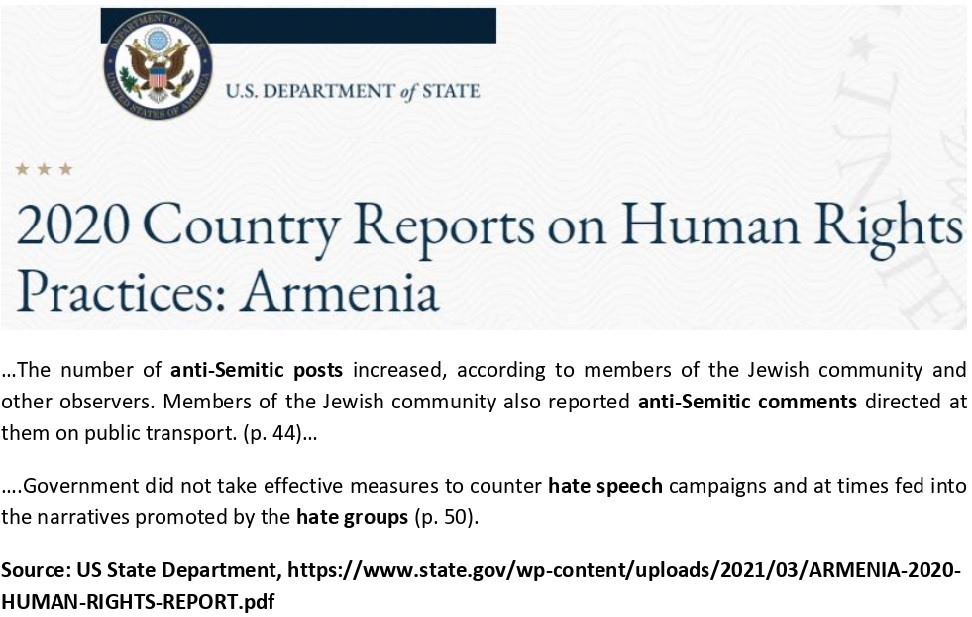Extracts from the 2020 US State Department Report on Human Rights Practices in Armenia
War crimes, Hate speech /Hate crimes and anti-Semitism
- Following the closure of borders between Armenia and Azerbaijan in 1991, inflammatory rhetoric and hate speech became increasingly prevalent (p.46)
- Human Rights Watch documented incidents in which Armenian forces used ballistic missiles, unguided artillery rockets, and large caliber artillery projectiles, which Human Rights Watch reported resulted in the deaths and injuries of dozens of civilians (p.5).
- Significant human rights issues connected with the Nagorno-Karabakh armed conflict included unlawful killings and civilian casualties (p.2).
- Amnesty International report documented the cutting of an Azerbaijani border guard’s throat while the guard was gagged and bound, and it assessed that the guard received a wound that led to his death (p.4).
- The number of anti-Semitic posts increased, according to members of the Jewish community and other observers. Members of the Jewish community also reported anti-Semitic comments directed at them on public transport. (p. 44)
- Activists and NGOs that promoted gender equality were frequent targets of hate speech and criticized (p.38) Women politicians and officials experienced severe hate speech targeting their gender (p.40)
- These included hate crimes such as physical violence, sexual violence, repeated psychological violence, and violation of property, as well as threats toward the life and health of a person. (p.47)
- Government did not take effective measures to counter hate speech campaigns and at times fed into the narratives promoted by the hate groups (p. 50).
Source: US State Department, https://www.state.gov/wp-content/uploads/2021/03/ARMENIA-2020-HUMAN-RIGHTS-REPORT.pdf

